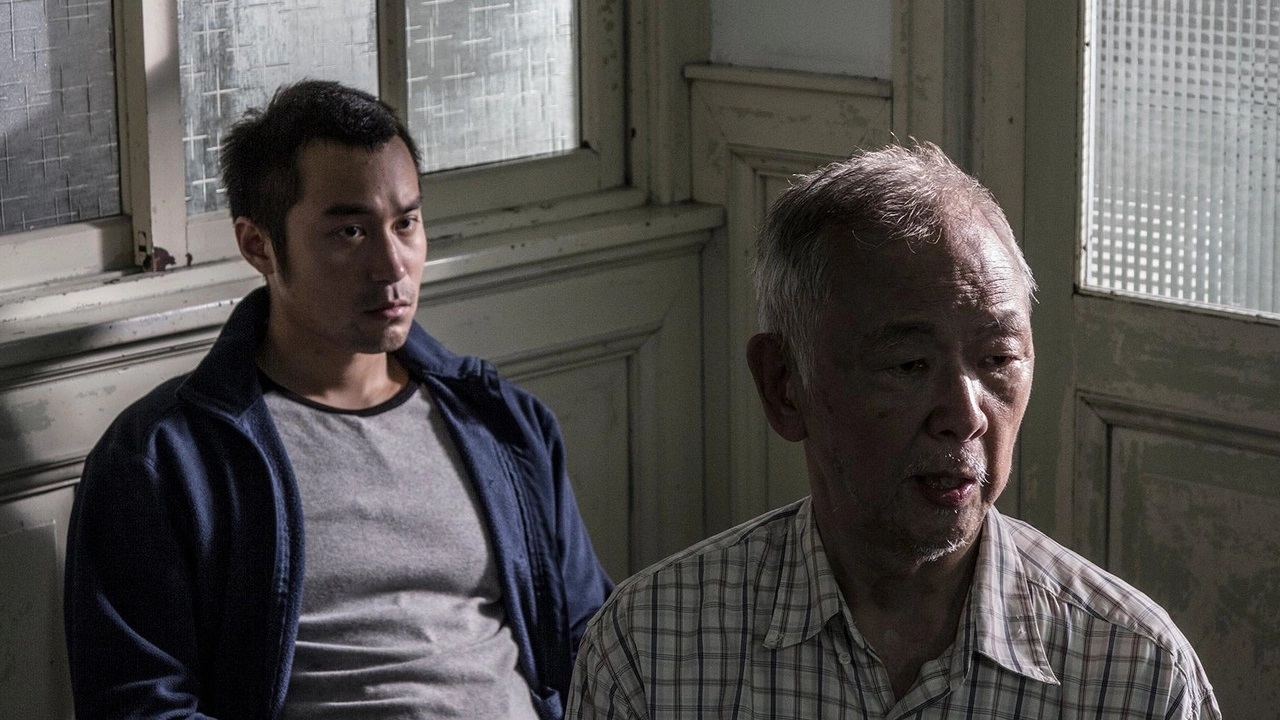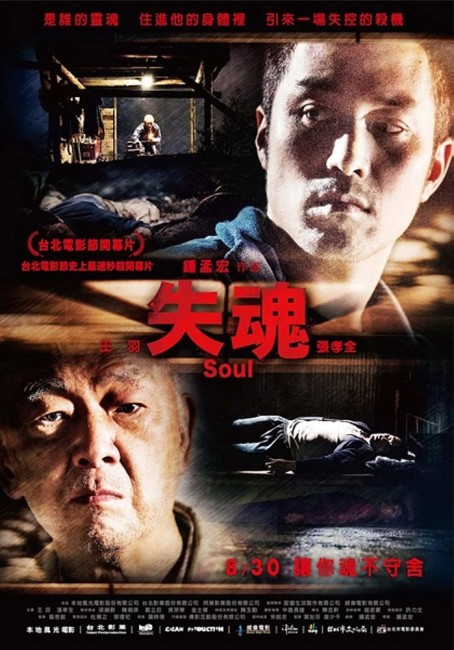(Shihun)
Crew
Director/Screenplay – Chung Mong-hong, Producers – Tseng Chao-chien & Yeh Ju-fen, Photography – Nagao Nakashima, Music – Tseng Si-ming, Production Design – Chao Shih-hao. Production Company – Creamfilm Productions/Ocean Deep Films.
Cast
Jimmy Wang (Mr Wang), Joseph Chang (Wang Au-chuan), Vincent Liang (Little Wu), Tuo Tsung-hua (Constable Yang), Chen Hsiang-chi (Hsiao Yun), Leon Dai (Hsiao Yun’s Husband), Chen Yu-hsun (Dr Wu), Chin Shih-chieh (The Messenger)
Plot
Au-chuan, a worker in a Japanese restaurant, suddenly begins to behave erratically. His co-workers are ordered by their boss to drive him back home to his father who runs an orchid farm in the mountains of Taiwan. There Au-chuan lies in bed unspeaking. His father returns to the house to find that Au-chuan has killed his sister Hsiao Yun and no longer knows who he is. All he will say is that Au-chuan had left his body and that he came and occupied it. Mr Wang contrives to bury the daughter’s body. He then puts Au-chuan out with sleeping pills and locks him in the shed. However, when Hsiao Yun’s husband comes looking for her, Mr Wang is forced to kill him too. The situation forces him to cover up the crimes as he tries to understand what has happened to Au-chuan.
Chung Mong-hong is a rising Taiwanese director. Soul is his third film, following the black comedy Parking (2008) about a man passing encountering the strange inhabitants of an apartment building as he tries to find who has blocked him from getting his car out, and The Fourth Portrait (2010) about a young orphan, which had some fantastic elements. Mong’s subsequent films, Godspeed (2016), A Sun (2019), A Leg (2020) and The Falls (2021), have all been regular non-genre dramas.
I had no real idea what to expect from the film when sitting down to watch it, however Soul soon began to absorb me. There is the strangeness of what is happening to the son (Joseph Chang) – I liked the casual coldness of the way he describes what has happened: “He left, I took his body” and “Au-chuan will be gone for a long time,” or dismissing the murder of the daughter “I felt she threatened me.” Not to mention how the father is rapidly wound into a situation that comes with a Hitchcockian series of twists and complicities – he finds the son has killed the daughter and tries to hide the body just as a police officer friend turns up at the door; he then has the daughter’s husband come looking for her and call her cellphone only to hear it start ringing in the middle of the orchard.
The film’s location – an orchid orchard on a mountainside that is only accessible via a small cable car – is an unusual setting. The cinematographer depicts this with an exceptional beauty and there are some stunning shots looking down from the mountain or across the mist-covered orchard.
The possession plot (of sorts) is one handled in no way that we have seen before – rather than the son acting sinister, mouthing obscenities and developing facial disfigurements as you would get in an English language possession film, the possession here seems more like an astral projection story where the son’s soul went wandering and someone else found the body empty and came and occupied it. Some of the most intensely mysterious scenes in the film are those that involve a cryptic character referred to as The Messenger who comes to deliver messages from the real Au-chuan and leads the new inhabiting soul to a well in the woods to find Au-chuan in a dream.

The mix of possession plot and mundane murder mystery create an intensely fascinating film. In particular, the old man Jimmy Wang gives an excellent performance, playing the part in a feeble way that rarely lets his impassive face betray any emotion, except for tiny leaks through the eyes and in his passive nods.
Chung Mong-hong builds the film up extremely well, although Soul falters when it comes to its third act. This would be best demonstrated by thinking of how it would work as a US film – the nearest point of comparison would be Insidious (2010) and Insidious Chapter 2 (2013). A US film would regard the other soul’s inhabitance of the son’s body as an issue of great horror as per most of the plot of Insidious Chapter 2. The latter half of such a film would be filled with a struggle to rescue the son’s soul along the lines of the climax of Insidious, while we almost certainly would have been given some backstory about who the new soul inhabiting the body is, something this film never does (the inhabitant doesn’t even gets a name). Instead, Soul seems to forget about its body predation plot after a certain point. (Indeed, there at times when we are led to think there may not even be a possession going on and that everything can be explained as mental illness on the son’s part).
The end of the film comes [PLOT SPOILERS] in terms of a thriller resolution with dead bodies everywhere before the father admits guilt for the murders and is sentenced to a psychiatric facility. Rather than any horror movie resolution, the other soul is left in command of the son’s body and there is an extended epilogue where the son goes to meet the father in the asylum and the feeling is one of reconciliation between estranged father and son.
(Winner for Best Cinematography at this site’s Best of 2013 Awards).


